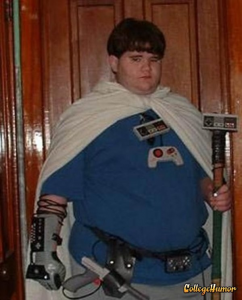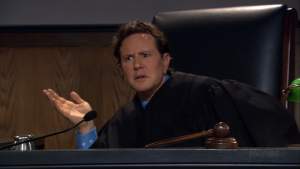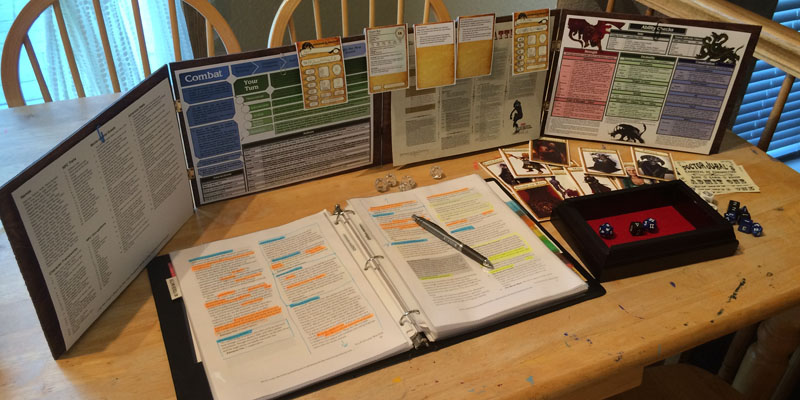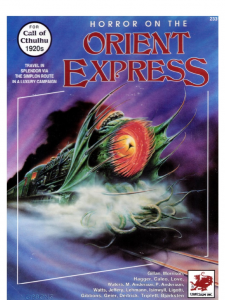Here you are running an amazing series of sessions in your favorite role-playing game… and then work calls. Then you get an email from a project that isn’t going to get funded. Classes start, the laundry needs to be done, your kid decided throwing up is the best bedtime plan. STRESS happens, we all know it. The question becomes, how do we deal with it and keep enjoying our hobby? It’s not easy, particularly as we get older and pick up more responsibilities. I don’t consider myself a grognard in personality, but I’ve certainly been playing RPGs for quite a few years.
In the old days, it was easy to play 2-3 games per week because that was all I had going on. This is a lie, the more I think about it. In truth? I was working 70-80 hour weeks when I was in my early 20’s and gaming was my outlet; it was the thing that kept me going. Stress was present then just as it is now. So, in my experience, stress is something that we’ll deal with while we are running games. Sometimes, this stress is directly related to the games we are running. More often than not though, its external stress that bleeds into our sessions.
1 – Tell Your Players
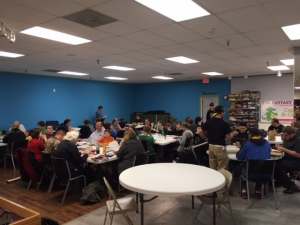
If you are experiencing stress, tell your players. “Hey everyone, I had a pretty rough day at work today, do you mind if we focus on some cathartic combat tonight?” “I’m sorry its taking so long for me to get my head in the game tonight, my son kept me running around today and getting him to bed before our session just didn’t happen. Give me a bit to really get going.” I’ve heard things like this and said them. Statements like these are helpful to helping me know how to pace things as a GM, and I personally think it helps my players understand where I’m at while running the game. Sometimes they will want a heavy RP session, but if I can’t handle that? It might be a good night to run a side session/mission or even switch up games to something that fits the mood better.
2- Take A Break
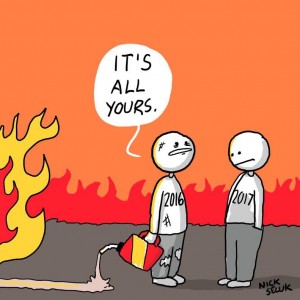
The worst decision I ever made was trying to run a full campaign during Grad School. Off and on I had run some Pathfinder during my undergraduate degree and didn’t have a lot of issues. Keep in mind, I went from the Army, to undergrad and then straight into my graduate degree as an adult in my late 20’s early 30’s. That game was over Skype though, and to be honest, I was not as focused as I wanted to be and it hurt the campaign. I should have taken a break from running and just played in a few games. Then, in Grad School, I tried to run a Changing Breeds game, and play in a D&D campaign. I couldn’t do it. There were too many things going and my brain was overloading. I tried to introduce a few new players, and I think I spoiled their experience with role-playing games. That’s not what you want, and I was clearly not in the head-space to keep going. It won’t hurt to take a break, focus on one-shots, and just chill if you have a ton of stuff going on. No one will blame you.
3- Unwind Through The Game
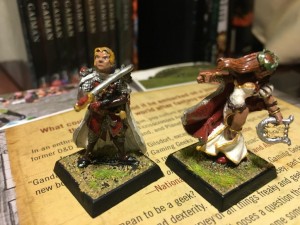
One of my favorite ways to reduce external stress is to find ways to incorporate what is stressing me out into the games I’m running. For example, I once worked for a person I detested. I create a character that was them in my mind, and gleefully watched my party destroy the stand-in monster. I have no idea if this is psychologically healthy… it might not be. In the end though? It really helped me deal with that person. Every time I saw them, I’d chuckle in my mind as I imagined the player characters hacking and slashing them in game. When I’m having other stress points, I try and devise ways to consider approaches to dealing with them through game play. One character, described in this blog post, really helped me break out of a serious bout of depression. They were confident, capable, and had a solid relationship life. That helped me to imagine what I would need to transform into that type of person. I think it worked.
4 – Play, Don’t Run

This advice is a little different from taking a break, but it has some similar functions. Have one of your players take over for a little while. A night, a campaign, whatever. I think it can be fun to ask a player to take over running for a single session, give them some basic ideas that fit your meta-plot and see what they roll out with. This can be stressful for some GMs, so it can’t hurt to just let someone else run something for a few weeks. This can help you get your brain back in a place that is healthy and ready to help construct the role-playing challenge you like to create.
I’m sure this will seem like basic advice. Nothing I’m saying here is revolutionary, but I’ve found its helpful to remind myself on a regular basis. A lot of this is useful to keep in the back of your mind to address the stress before it destroys your game and your love of the hobby.
Josh is the administrator of the Inclusive Gaming Network, and the owner of this site.
*Note, all opinions are the opinions of their respective Authors and may not represent the opinion of the Editor or any other Author of Keep On the Heathlands.
